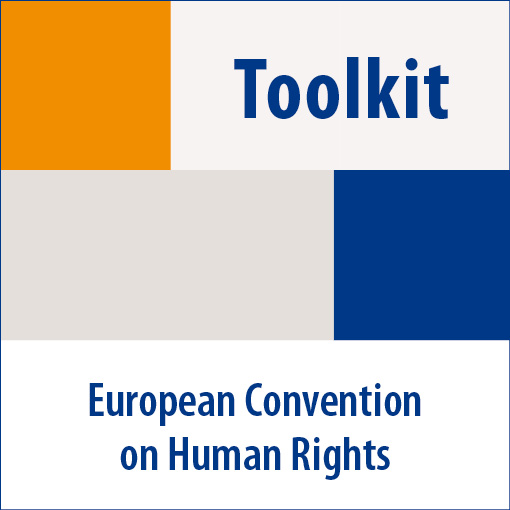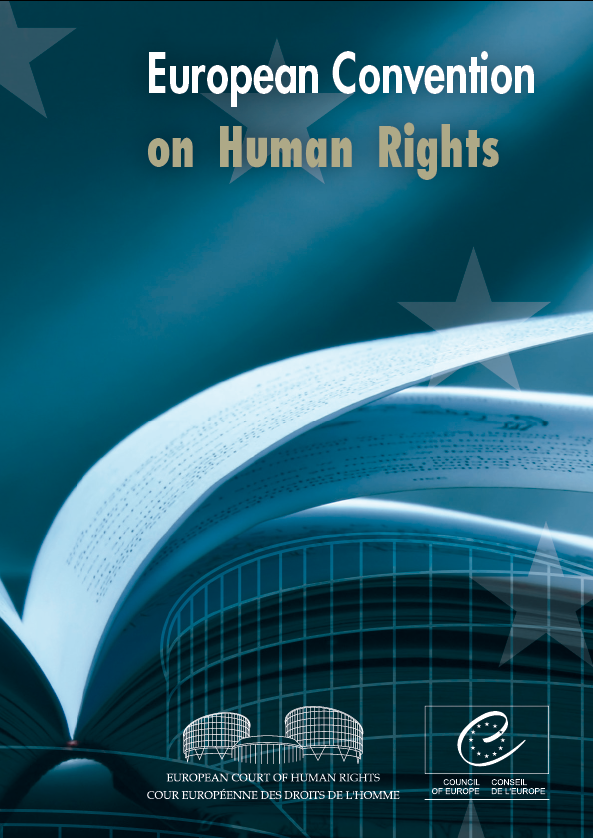The key provision of Article 6, in the first sentence of paragraph 1, is that "In the determination of his civil rights and obligations or of any criminal charge against him, everyone is entitled to a fair and public hearing within a reasonable time by an independent and impartial tribunal established by law".
Fair trial is a fundamentally important guarantee in any democratic society, so this article is one of the most important, and most frequently invoked, provisions of the Convention. There are more cases about fair trial than about any other issue. Responsibility to ensure a fair trial falls far more on judges, public prosecutors and lawmakers than on the officials dealing directly with the public for whom this toolkit is designed. But police (who can in some systems act as prosecutors) and prison officers have responsibilities in criminal cases, and other officials – court officials, social workers, licensing officials and registrars – also can have responsibilities in civil cases.
Because the Convention has to apply to many States, whose legal systems differ substantially, many of the terms in the article have been given their own "autonomous" Convention meaning by the Court. This applies, for example, to "criminal", "charge" and "civil right". These terms will not always mean the same as they do in national systems.
Civil proceedings
In principle, Article 6 applies broadly to all civil disputes, with some longstanding exceptions. In practice it is simplest to list some of the cases to which the Court has said Article 6 will apply and others to which it will not, but, NB, the lists which follow are not exhaustive and practice is always developing:
Disputes to which Article 6 has been applied:
- property disputes, e.g. planning disputes;
- licensing decisions, e.g. the right to practise a profession or sell alcohol;
- family proceedings, e.g. adoption, fostering, cross-border return of children and placing a child in care;
- claims for compensation against public authorities including hospitals;
- welfare benefit claims so long as there is a right, i.e. the benefit is not purely discretionary;
- disciplinary proceedings against judges and employment disputes of public officials.
Disputes to which Article 6 has been held not to apply:
- immigration and nationality disputes;
- taxation disputes between taxpayer and revenue authorities;
- election rights, e.g. the right to stand for elected office.
In all civil cases to which it applies, Article 6(1) expressly requires:
- a public hearing, subject to some exceptions, for example to protect children in family cases;
- an independent and impartial tribunal, i.e. one that is independent of the authorities and parties and is unbiased;
- trial within a reasonable time;
- a publicly pronounced judgment, i.e. publicly available, not necessarily pronounced in open court.
The Court has also implied into Article 6(1) the following rights:
- access to court (both physical and procedural);
- legal representation in civil cases (paragraph 3(c) already gives this right in criminal cases, see below);
- the right to participate effectively, e.g. through adversarial proceedings, with evidence available to one side disclosed to the other, and equality of arms, i.e. a proper opportunity for both sides to present their case;
- the obligation on the court to take both parties' cases fully and equally into account;
- the right to a reasoned judgment/decision;
- the obligation on the State to execute a civil judgment in a timely and effective manner;
- legal certainty, including the finality of judicial decisions.
The main impact on public officials is to put those dealing with civil disputes covered by Article 6 on notice that they must ensure the fair trial rights are respected, either at the time of the administrative decision or will be respected later in judicial review. These include social workers dealing with cases of adoption and placing children in care, etc.; planning officers deciding on planning applications; licensing authorities and professional bodies dealing with licences to practise, etc.; welfare officials dealing with claimants; and so on.
Criminal proceedings
For trials that determine a criminal charge, the procedural safeguards are stricter than for other judicial proceedings. The notion of "criminal" has a specific meaning under the Convention and may extend to disciplinary, administrative or fiscal proceedings if they may lead to punishment of the person concerned.
In addition to the rights given by paragraph 1, people charged with a criminal offence have the following further specific rights, set out in paragraphs 2 and 3 a to f:
- Presumption of innocence (paragraph 2). A person is innocent until proven guilty according to law. There is a right to silence and not to incriminate oneself. So public officials may breach this right if they state or imply publicly, for example, to the media, that a person is responsible for a crime before a court has found him or her so. The provision does not however prevent preliminary tests like blood or urine tests nor orders to produce documents.
- Prompt and intelligible information of the nature and cause of the accusation against him or her (paragraph 3(a)). This is similar to the right in Article 5(2) (see above) but the purpose is different; in Article 5 it is to enable the person to challenge his or her arrest and detention, in Article 6 to prepare his or her defence. The task will normally fall to the police, court officials or prosecution officials. The person must be able to understand the information, including, if necessary, by being provided with a translation (at State expense, see paragraph 3(e) below). Where the accused has a disability (for example, blindness, deafness or mental illness) which makes it hard for him or her to understand, other special assistance to him or her may be required. Adequate time and facilities for the preparation of his or her defence (paragraph 3(b)). The time will vary with the complexity of the case, but the facilities will always need to include, for prisoners on remand, visits by their lawyers, who must be able to have confidential discussions, out of earshot of police or prison officers.
- The right to defend him/herself in person or through legal assistance of his or her own choice, provided free where the interests of justice so require (paragraph 3(c)). Similar issues of access by lawyers to the accused apply here. The Court has held the legal assistance must be practical and effective including at the pre-trial stage as well as in court. Thus, where a high-profile prisoner was interrogated for nearly seven days without being allowed access to his lawyer, there was a breach, because his defence risked being irretrievably prejudiced. In the same case, because the files were so big, two one-hour visits a week were not enough to allow the defence to be prepared (Öcalan v. Turkey). As before, consultations need to take place out of earshot of officials. As a rule, the assistance of a lawyerneeds to be provided as from the first interrogation by the police.
- The right to examine prosecution witnesses and call witnesses in his or her defence (paragraph 3(d)). Where a witness's evidence is decisive as to the guilt of the accused, the latter must be given a chance to crossexamine that witness, if necessary with legal assistance.
- The right to an interpreter, provided free, if he or she cannot understand or use the language used in court (paragraph 3(e)).
As is evident from the above, in criminal cases the role of police and prison officers in respecting and protecting rights is much greater than in civil ones. In addition to the examples given, the length of time cases take will depend in part on the efficiency of police investigations. The Court includes the investigatory phase when assessing if the time taken is reasonable.
No punishment without law (Article 7)
This provision forbids retrospective application of the criminal law. It includes the right not to be tried or punished for an act which was not a criminal offence at the time it was done. Police need to be careful to ensure that offences and penalties were in force at the time of the acts in respect of which they arrest and charge people. Again, it should be noted that the notion of "criminal" has a specific meaning under the Convention and may extend to disciplinary, administrative or fiscal proceedings if they may lead to punishment of the person concerned.




